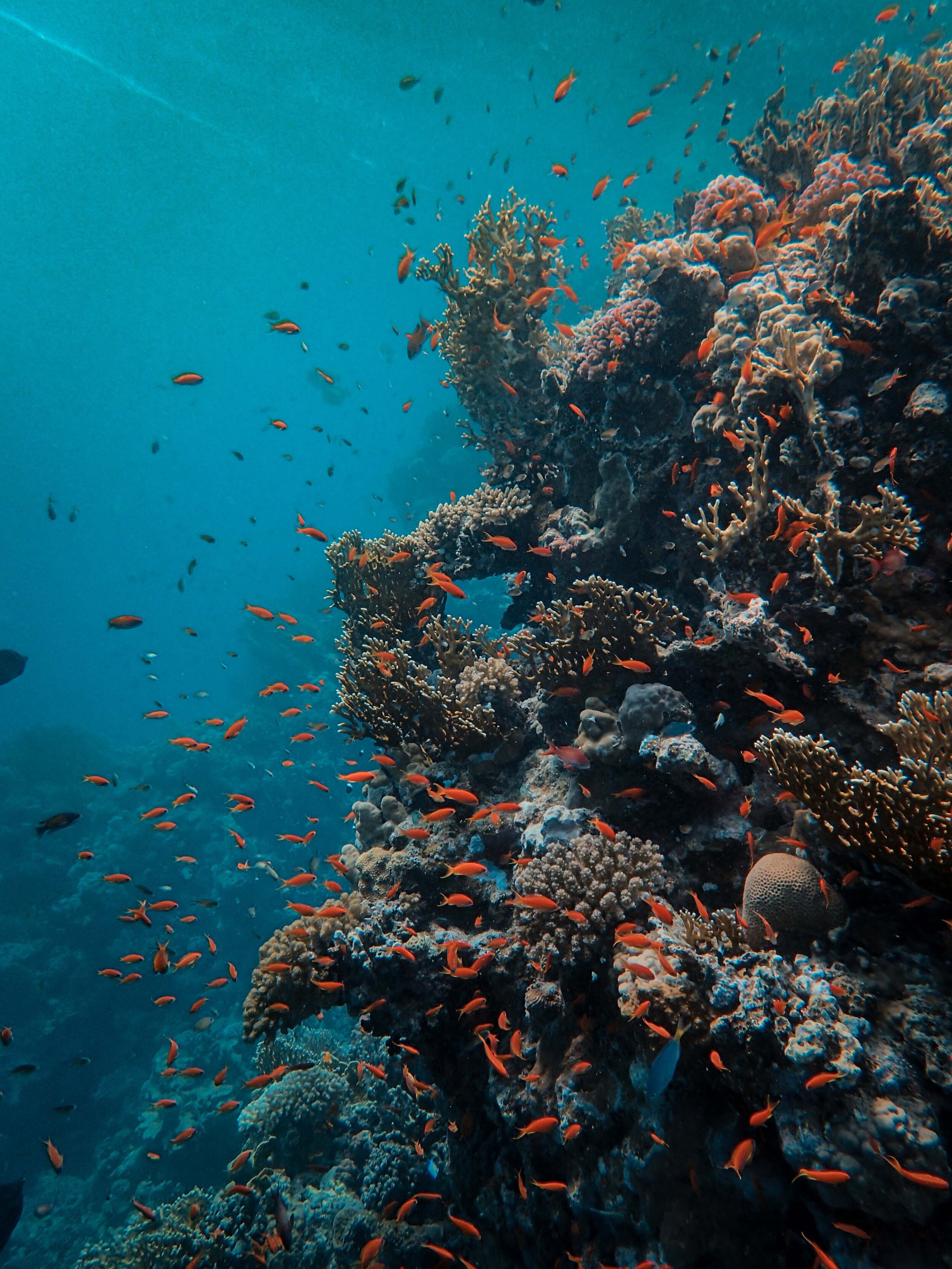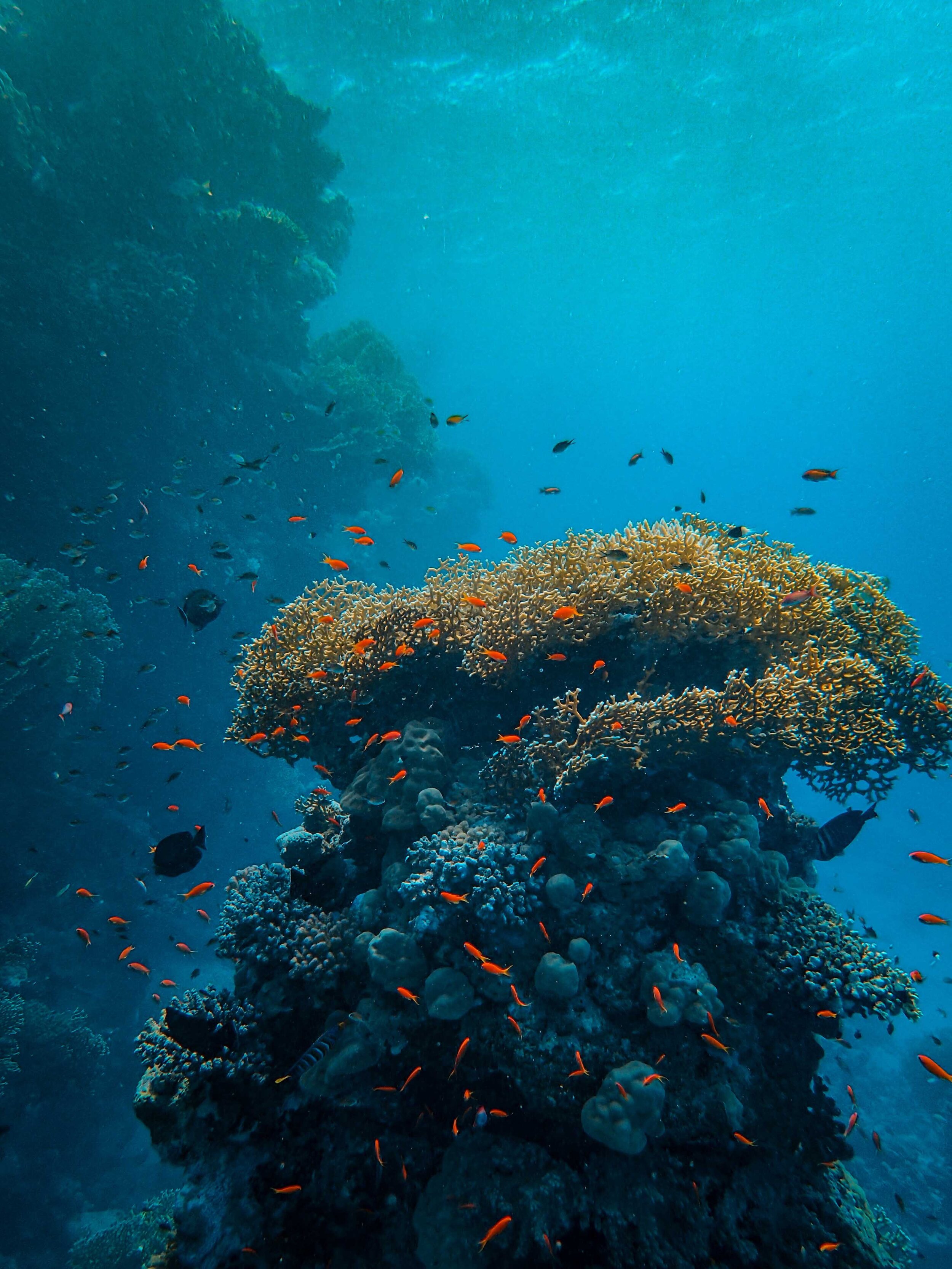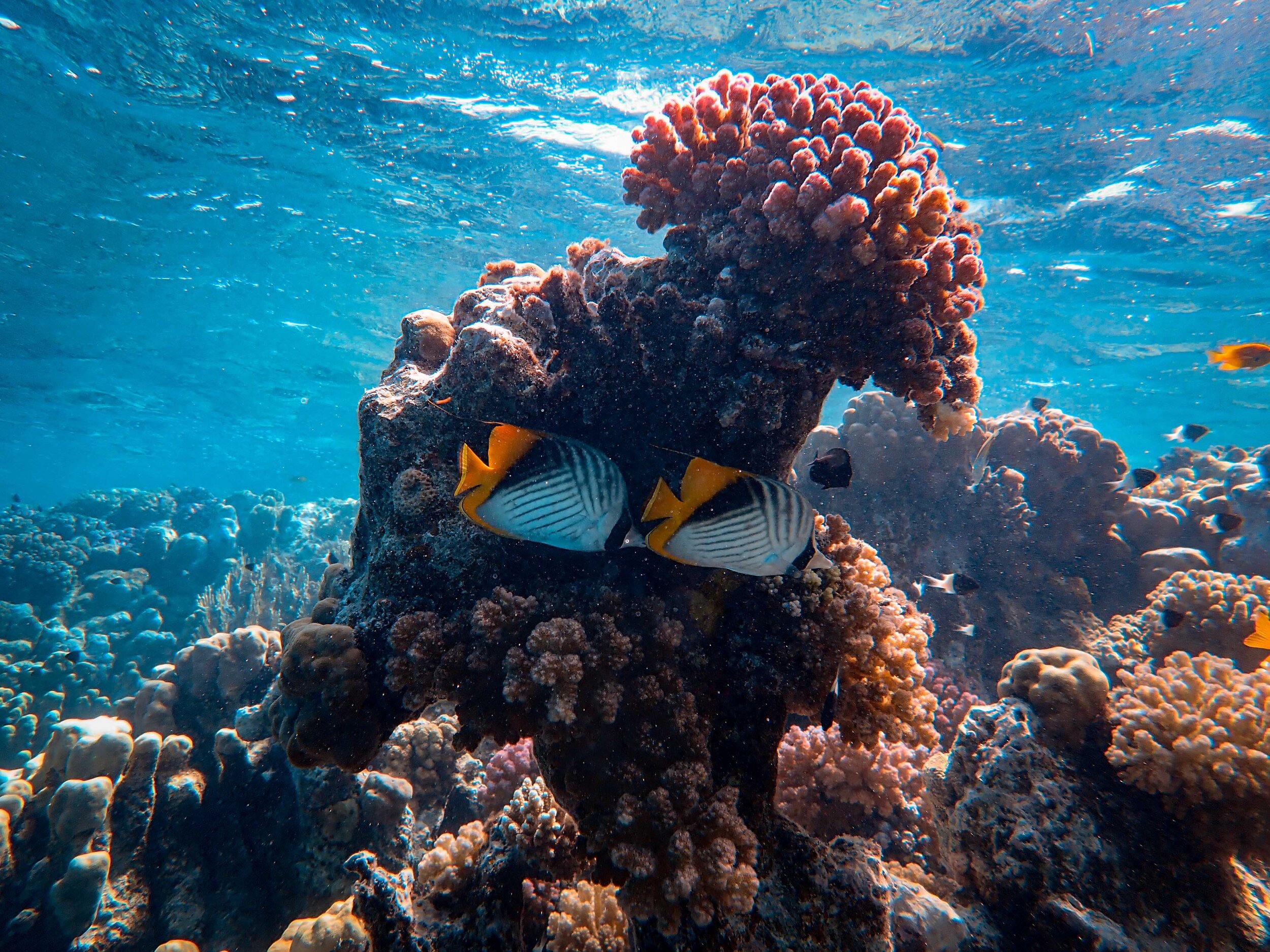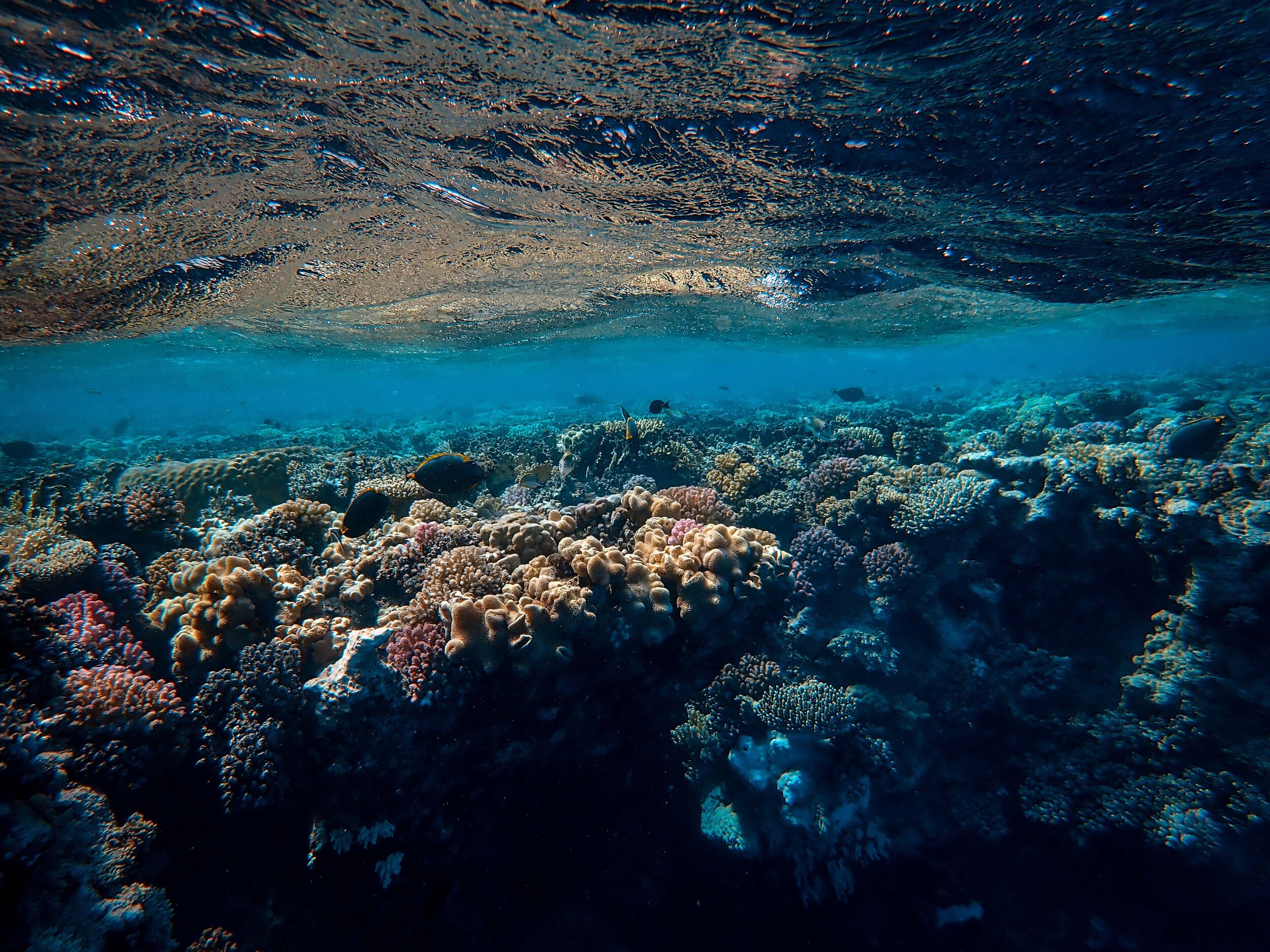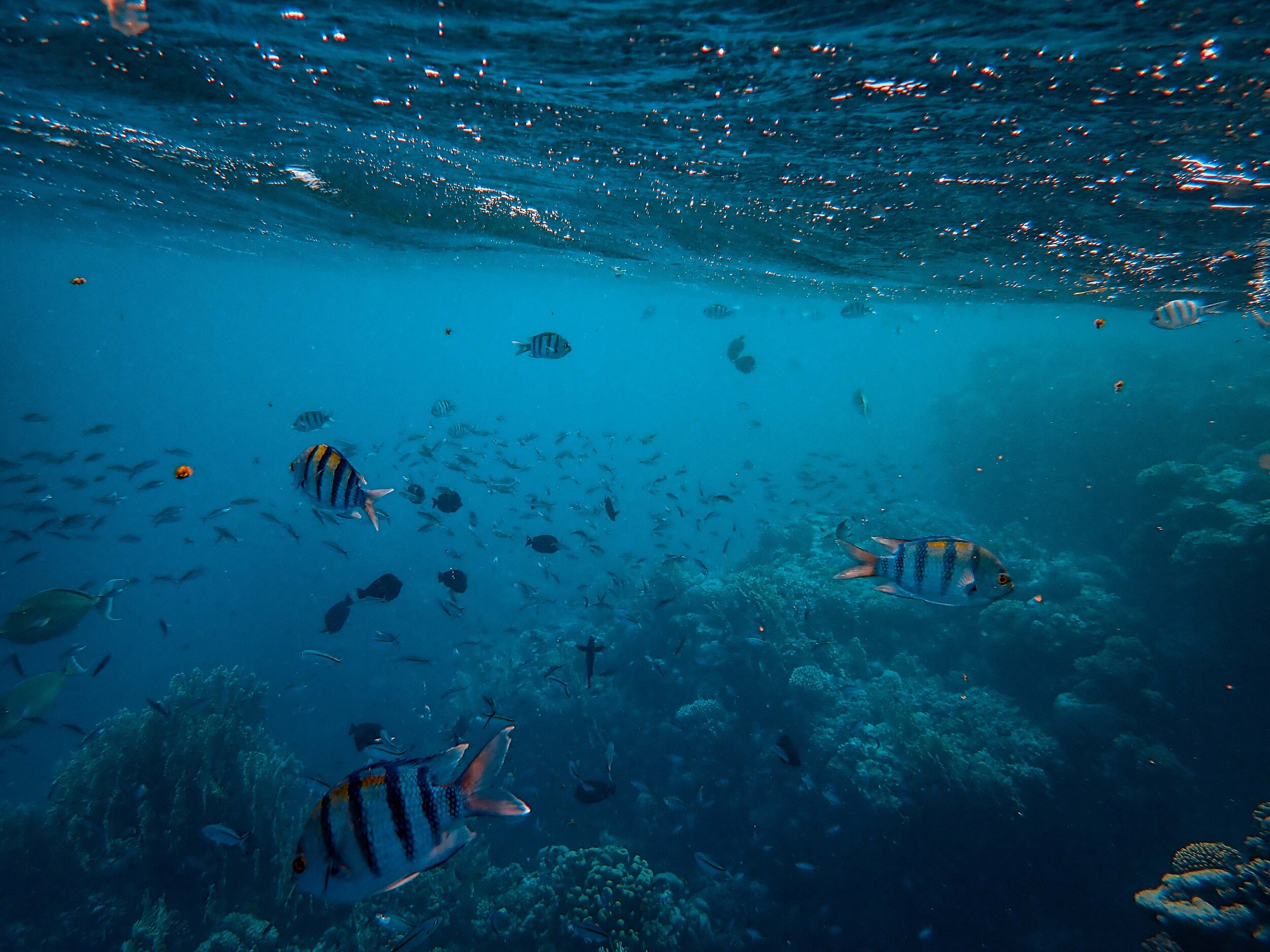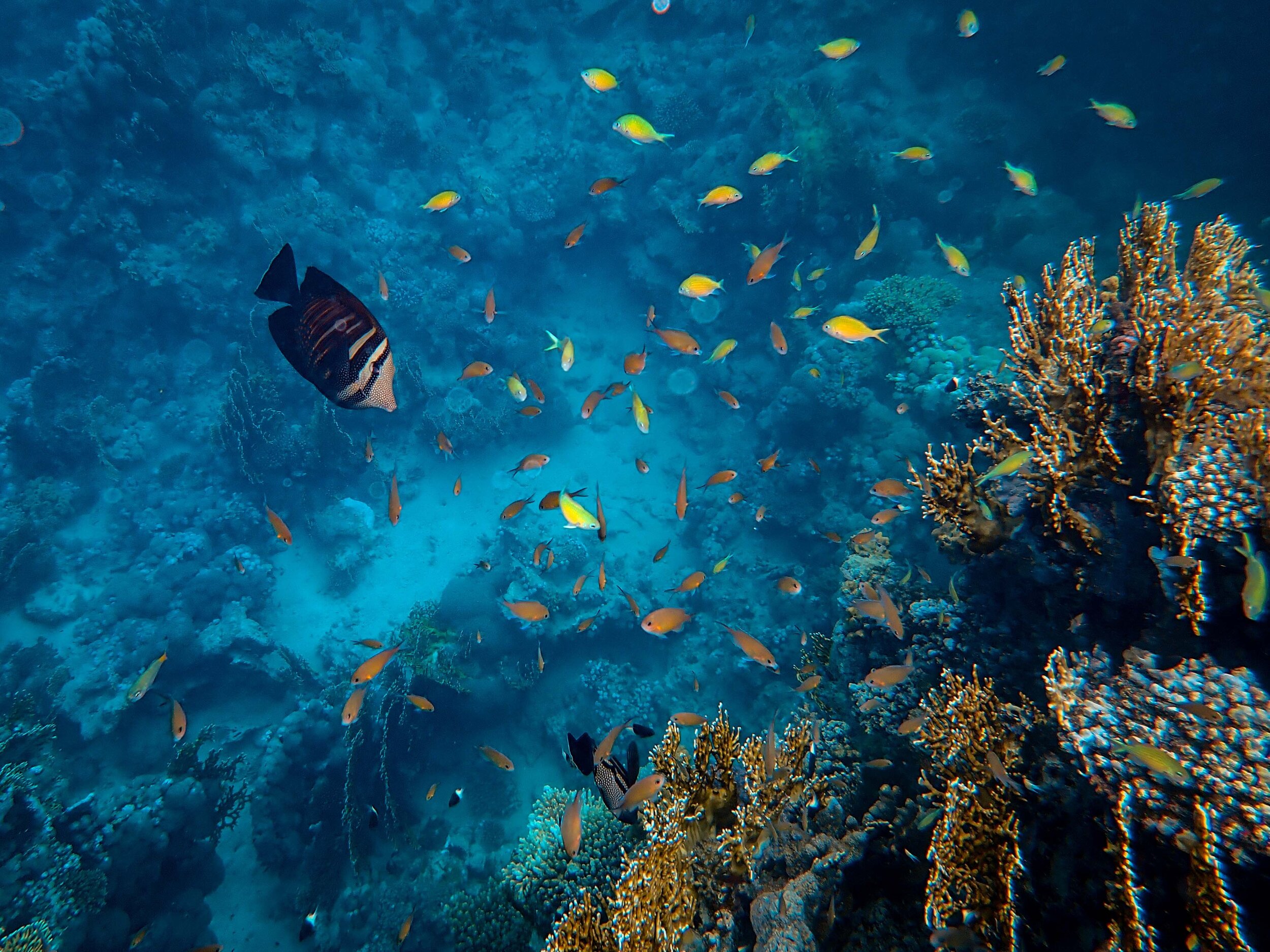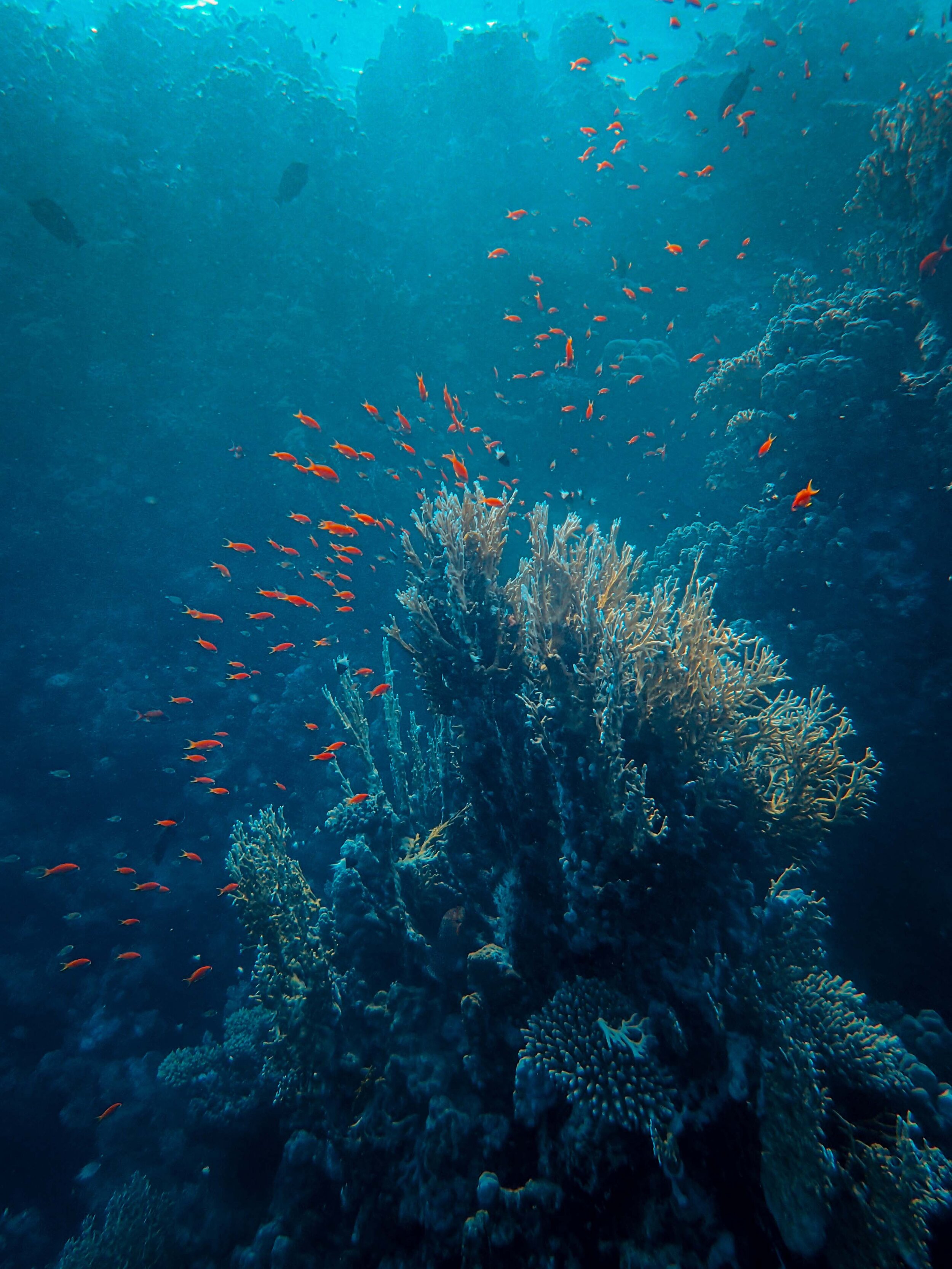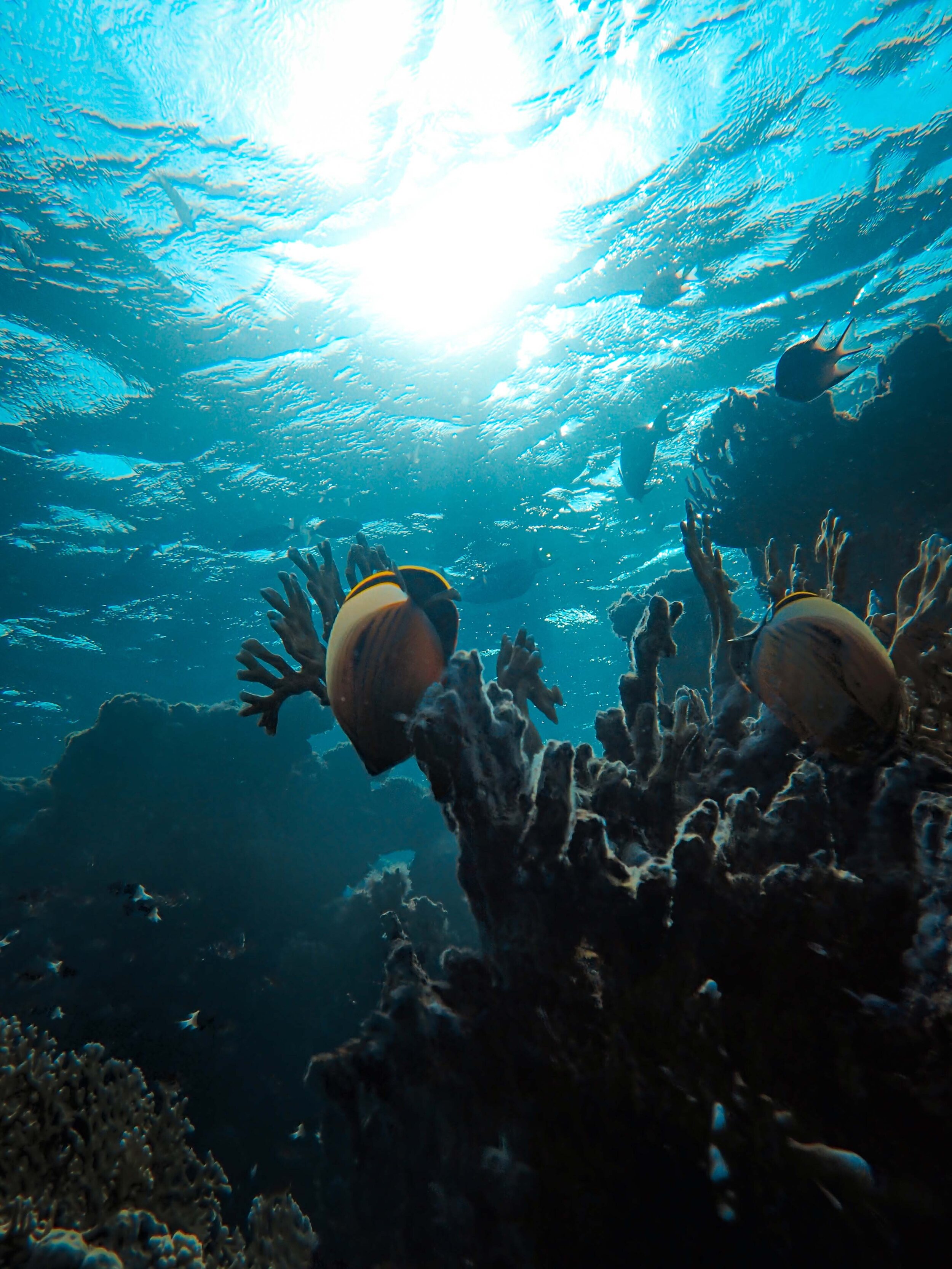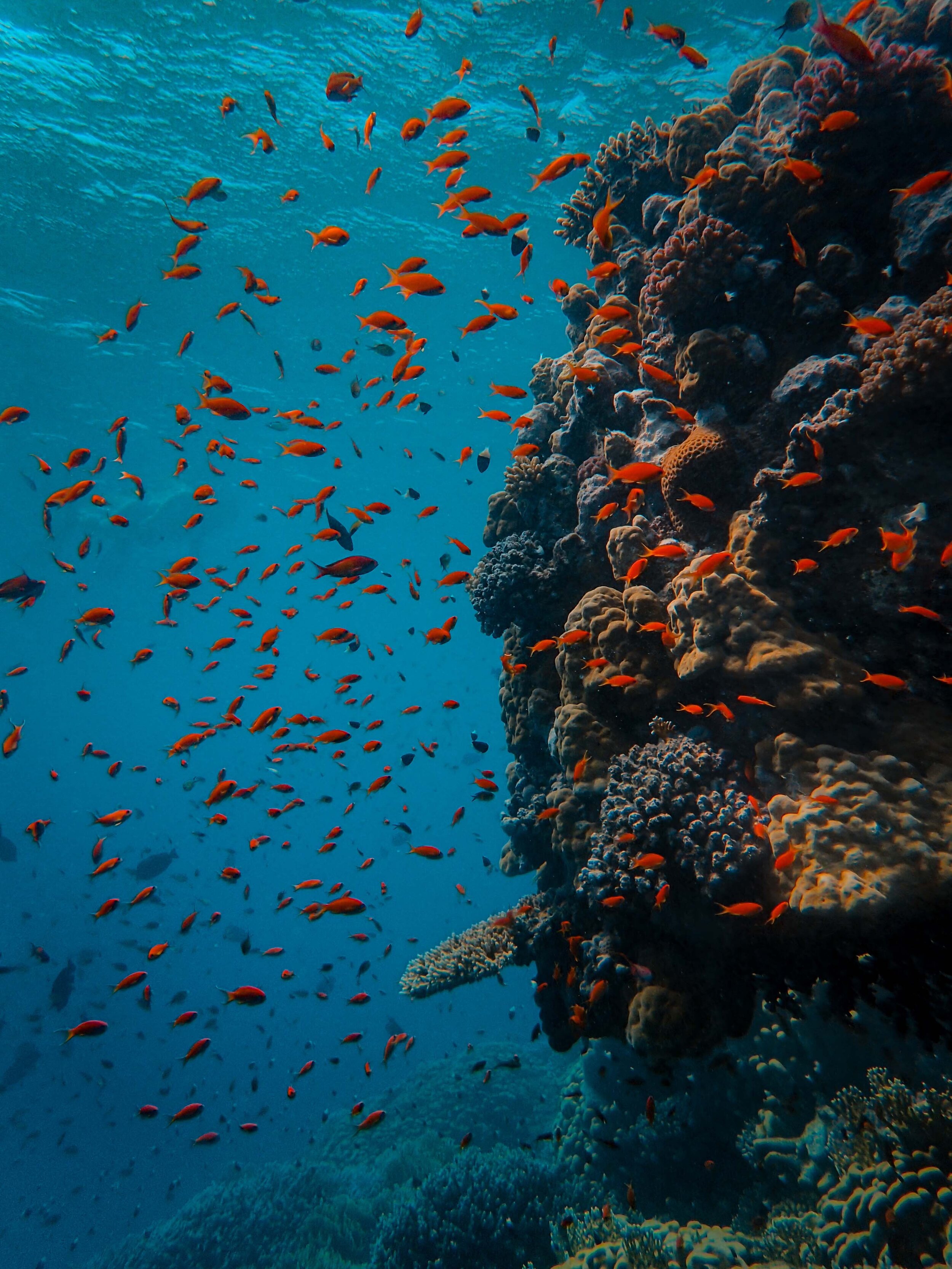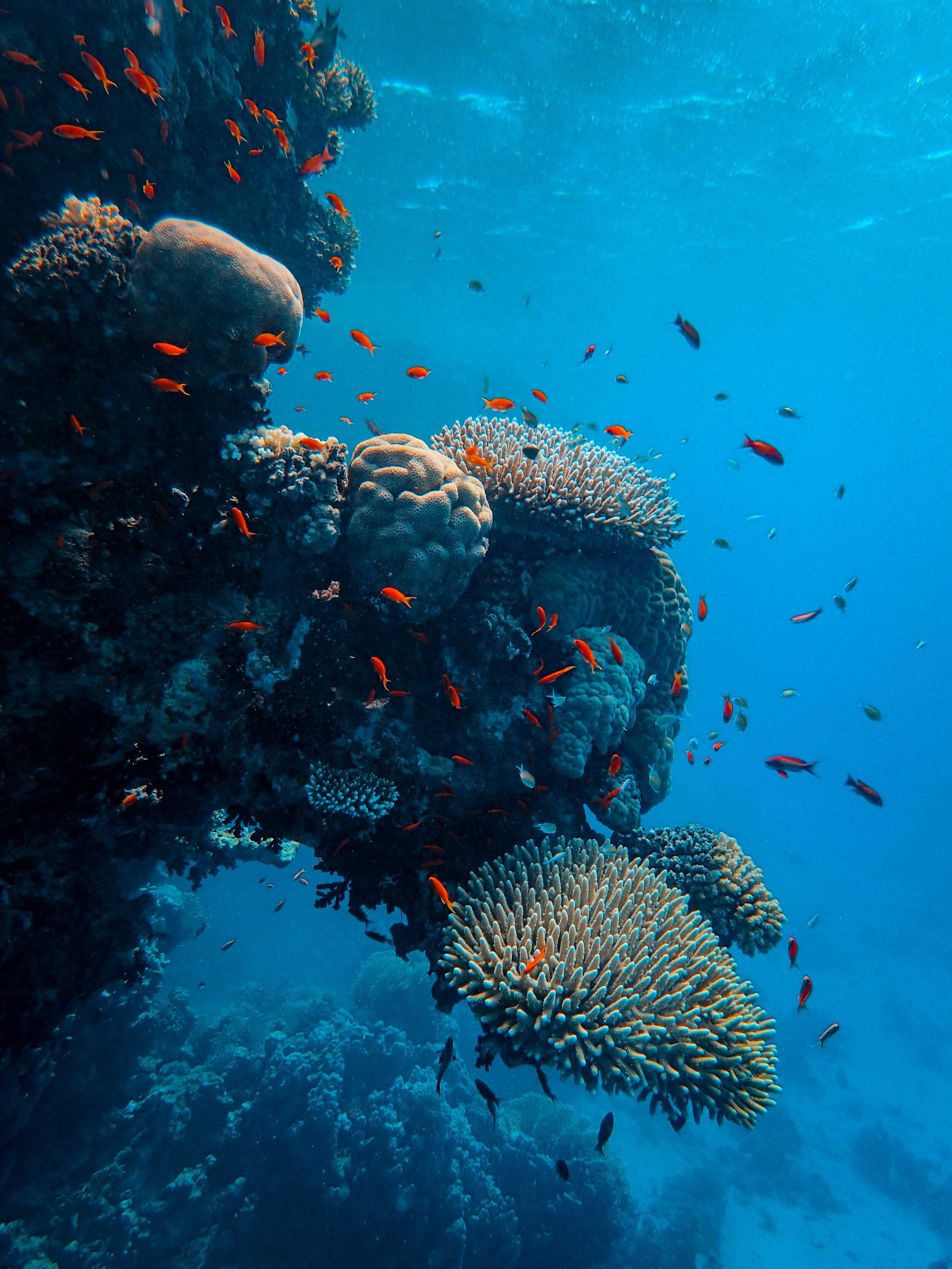All photos by photographer Francesco Ungaro
Grains of sand fall slowly against a backdrop of blue; my only reference of the passage of time.
I watch them, captivated, as they fall to their final resting place on the seafloor, ordered by waves into neat ridgelines. Streams of light weave dancing patterns over my fingers as they drag in the pale dunes, and for a moment I feel like the subject of that moving light. I smile at the anthropocentrism: that familiar human inclination to believe everything revolves around me.
I look up. A reef rises up from my place in the sand like the gates of a cathedral. Fish congregate around sky-reaching towers decorated in swaying anemones, framing the entrance to a bustling atrium. Within the gates, avenues wind through the rocky columns like aisles in a nave, leaving clearings of sand where fish meet in quiet prayer. The clicks and clacks of the millions of crustaceans that live here form a chorus of voices, chanting psalms that harmonize in a rich and pervasive soundscape, ripe for reflection. The gates, a perfect duality of Gothic architecture and fractal geometry, are a gentle reminder: I’m pretty sure you’re not supposed to bring a spear gun into a place of worship.
I come here often, each time bearing different roles: sometimes a scientist, sometimes a parishioner. Today I take the role of hunter.
I kick off the bottom gently. My movements are slow, aimed at keeping my heart rate down: my breath will last longer that way. Already I’m feeling the high that accompanies a freedive, the euphoric calm that comes not from oxygen deprivation but from the buildup of carbon dioxide in my blood and lungs.
With a flick of my fin, the hunt carries me through the gates. To either side, fish shrink back under rocky outcroppings, hiding from my shadow, and shades of lilac light filter in through the fan corals like stained glass. Coris wrasses, decorated in electric purples, pinks and greens dart through the pale-yellow branches of Stylophora, one of the prominent hard corals on these reefs. A little damselfish, the size of my finger, throws itself at my mask, the impact on the glass reverberating through the water. A warning meant to keep me away from its small patch of farmed algae. It works. I make a quick right turn.
Around me, stone pillars encrusted with algae and coral vibrate slowly with the movement of invertebrates: bright blue worms, speckled crabs, and sluggish sea stars making their daily rounds for food. Filter feeders sway in the current, extending their leaf-like nets to feed on the plankton that pass them by, and I am reminded that no resource is wasted on this bustling reef. The work of animals and bacteria deep inside the reef probably help with that, I imagine, as they ceaselessly process the waste that trickles down from above. Every good congregation needs a recycling service.
Motion to the left. I raise my gun slowly, aiming at a shadow in between two outcroppings. Manani, a type of Tang fish. The pop reaches my ears a second later, but the end of the spear is disappointingly still. Lodged in sand, sans fish. I collect the spear, reload. My vision’s closing in, a little bit.
I return to the surface and take a breath. It’s been a little under two minutes, I think; feels like longer. I let my pulse settle, take a few breaths, and once again enter the cathedral, scouring the aisles until my lungs spasm and my body acquiesces to the limitations of its physiology. I do this until it feels like there is no pew unturned, no encrusted spire unmapped, until my mind burns in a haze of hypoxia and frustration. Up and down, up and down.
It’s getting late, still no fish. I decide to swim a bit further out. Below me, a school of thousands of glassfish, their movements perfectly coordinated, lie between me and the bottom. I push forward, and a hole opens in the mass of tiny fish, translucent bodies glinting in the fading sunlight like molten glass. I pass through the great glass donut. I am now hungrier than I was before, and the peace of the preceding hours is tinged with irritation.
I settle on the sloping bottom. On one side, high above me, the cathedral bustles as before; on the other, just deep and empty blue. I swim to the right, trying to keep my movements slow, my eyes trained on a blue background that reveals itself slightly more with each kick of my fin. Too soon, my vision starts to sway. The tightness in my chest comes, and then passes; I breathe out a few bubbles to trick my brain into thinking it’s almost over. I am deeper than before, and the hint of frustration spikes my heart rate, reducing my time at depth. My lungs begin to burn. A numbness starts in my fingertips and travels slowly up my arms, and I struggle to keep my eyes from looking up at the surface, the air a temptation I would not be able to resist. I remind myself of the goal. I am getting desperate.
Ahead of me, a flash of color materializes out of the blue. Uhu, a parrotfish. Frustration dissipates in a cloud of promise; my impending success pushing off the discomfort like a spark of flint in a dark room. I raise the gun slowly, plant my knee in the sand, line up the shot, fire.
Spear impales nothing. Uhu disappears behind a rock. I frown, grab the line, and kick off for the surface.
My ascent to the sky seems to pass in slow motion. The bubbles I exhale keep me company: in them, my reflection is clear and convex, eyes sparkling against a backdrop of blue. In those bubbles I see all the roles I have taken in coming here: the curious scientist, the loyal patron, the famished hunter. Those roles seem to melt, one into the other, until the purpose underlying each dissolves into nothingness: this was never about food, or science, or photographs, or exercise, or God. I was really only ever here to be here. I glance up at our destination, chest tightening again. Wind-whipped barrels at the churning surface act as prisms, sending rainbows down on a tower of bubbles, an unsuccessful fisherman, and an empty spear, trailing from the line below.
My head clears the surface, and in the wave of air that meets my lungs there is a hint of new perspective. I came here for food, and I am empty handed. I pushed my physiology to the brink and was met only with tingling palms and vision blurring at the edges. I am exhausted. But the experience wasn’t a failed one; what began as a hunt has simply become a pilgrimage. All this time I spent diving, only to arrive exactly where I began and realize the ‘up and down’ was all that mattered.
Fuck the destination. Sometimes the journey is just a journey.
I look to shore, see the clouds collecting over the lush forest, and my stomach growls again. Leaving the ocean poses as much of a challenge as the relinquishment of my ambition, but it’s a worthy cause. What awaits me on land is a welcome departure from the burden of purpose. Instead of Uhu, I will sustain myself on the mangoes and lilikoi that fall from the jungle trees, like rain.
-Jason


